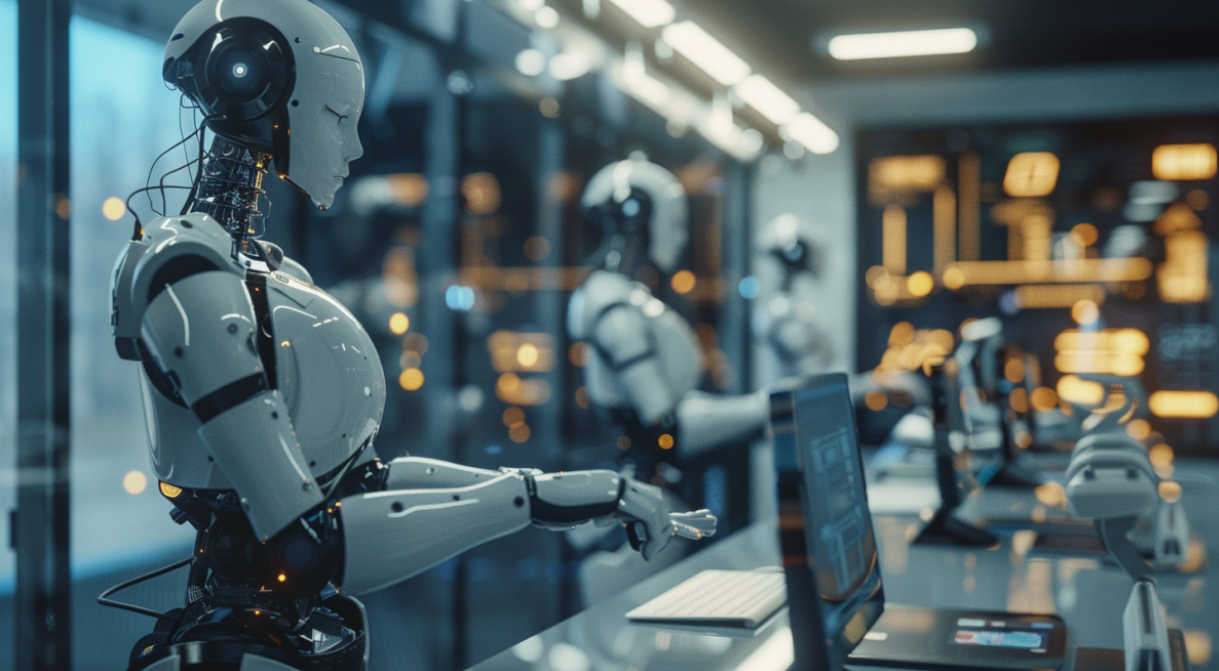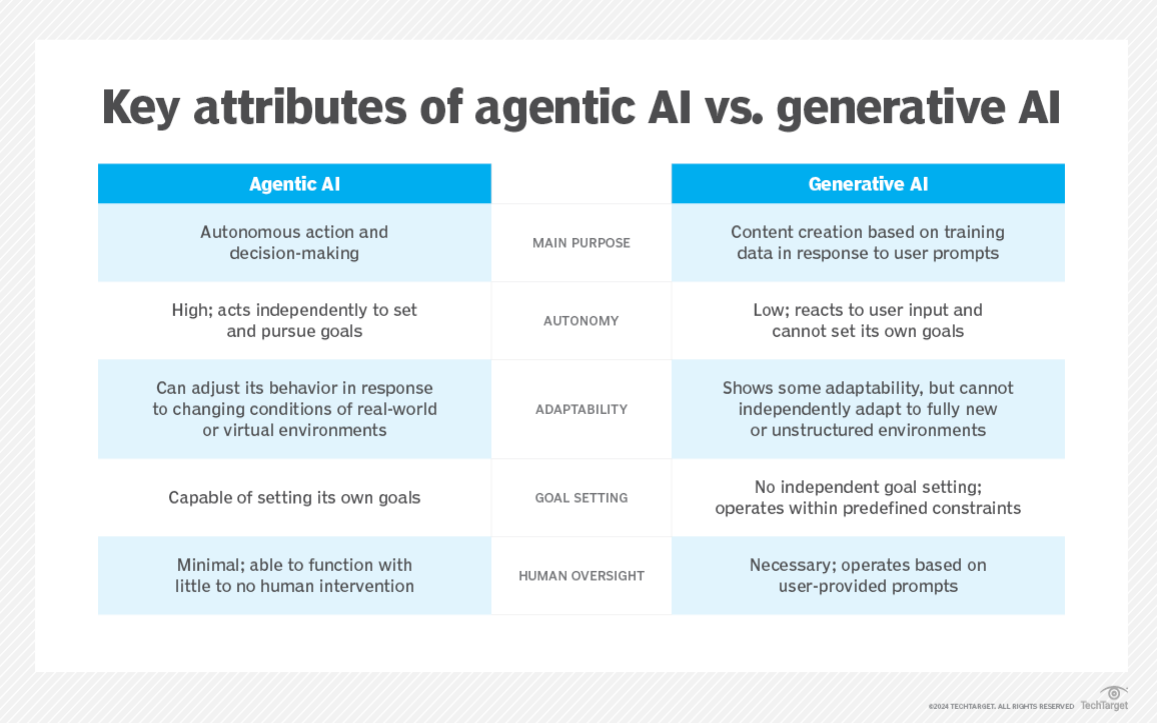Next year may bring more progress. Companies may embed agents into their workflows. This could also give rise to a coordinated infrastructure and better reasoning models.
Author: Esther Shittu
Translation: Blockchain in Plain Language

For many, the future of AI agents resembles the character J.A.R.V.I.S. from the Marvel Cinematic Universe.
J.A.R.V.I.S., which stands for "Just A Rather Very Intelligent System," was originally created by Tony Stark—a fictional industrialist and prominent investor—as a natural language computing system. Later, it evolved into an AI system that served as Stark's assistant. Eventually, J.A.R.V.I.S. acquired a synthetic body and became the robot "Vision."
Although AI agents—autonomous and semi-autonomous generative AI systems capable of executing actions independently—may still be far from having physical capabilities, they could come close to or even surpass J.A.R.V.I.S. at some point next year.
In the second half of 2024, the popular growth of AI agents will resemble the rapid rise of ChatGPT and other generative AI systems in 2022, which transformed the AI market. Vendors seem to be quickly shifting from developing the latest large language models (LLMs) and AI chatbots to creating agents and action models.
For example, Salesforce launched Agentforce last fall, a low-code agent-building tool. Microsoft introduced the AI Agents Service, a community platform to help developers build AI agents.
Other vendors have also introduced AI agents into enterprises, automating various business processes. Research firm Forrester Research has listed 400 vendors currently building agents.
“Forrester Research analyst Craig Le Clair said, ‘There is a lot of excitement around them right now.’ He added, ‘But there are also certain risks because you are unleashing an automated process that can execute without human checks and balances.’”
The coexistence of excitement and risk means that AI experts and vendors have high expectations for AI agents in 2025.
1. Eliminating Confusion Through Real Applications
One expectation is that while 2024 lays the groundwork for AI agents, 2025 will be the year AI agents are ready for enterprises, according to AI market experts.
This means that the confusion surrounding agents will dissipate, said AJ Sunder, co-founder and CIO of Responsive, an AI-driven proposal and response software provider.
“There is a lot of confusion between agents and automation, agents and RPA (Robotic Process Automation),” Sunder said. “Most of that confusion will disappear. Then we will start to see more agents being deployed and used in the real world.”
RPA uses robots or bots to automate repetitive tasks without relying on AI, while agents involve AI technology. RPA is deterministic and predictable, whereas agents are not.
“Their similarity lies in the fact that they are both digital colleagues,” Le Clair said. “However, when you add AI to a digital colleague, we call it an AI agent, which is smarter, understands context, and knows how to avoid getting stuck.”
Sunder said some practical applications of agents will appear in customer service; others will emerge in finance or fraud detection.
“Any complex task that requires AI to remember, plan, and execute multi-step, intricate tasks, I believe agents will play a significant role in that,” Sunder said.
One complex application is video creation.
“Many of these agent AI solutions can actually be deployed in a way that assists the video creation process,” said Shahzaib Aslam, research director at Colossyan, an AI video platform.
AI agents can help create an engaging video, provide compelling arguments, and include calls to action that encourage customers to take actions like purchasing products, Aslam said.
“This becomes a very powerful tool because it will help you create a more engaging and higher-converting video,” he said.
Agents will not only play roles in different application scenarios like video creation, but many will also begin using them to solve scaling issues, said Gartner analyst Tom Coshow.
However, the application and use of AI agents have different levels, said Peter van der Putten, director and chief scientist of AI at Pegasystems, a workflow automation and decisioning vendor.
He stated that at one extreme of application, AI agents can read, integrate, and synthesize information to draw certain conclusions but will not take any action. At the other end, AI agents take action based on the information they synthesize.
“The true success of agents does not lie in the intelligence capabilities of the agents themselves, but in how they are embedded into real applications,” he said.
However, he continued, most enterprises must first experiment before seeing the value of AI agents.
“Sometimes I am even surprised by what these systems can do,” van der Putten said. “The only way to understand this is through safe experimentation.”
2. Better Reasoning Models
Another expectation regarding AI agents is that large language models (LLMs) will continue to serve as their brains. This means LLMs need to become stronger in reasoning so that AI agents can perform their tasks better.
Aslam said chain of thought prompting has already demonstrated this.
The concept is that the model generates not just one answer to a question but multiple answers and reasons through a series of steps to arrive at a conclusion.
While this may be more costly, as enterprises need to run multiple reasoning processes to generate chain of thought, it also enhances the model's reasoning capabilities, Aslam said.
He added that this will be an area the AI industry and academia will delve into in 2025.
“This way of incorporating explainability into models is very meaningful, and we will see more work and research directed toward this, expanding computational scale during reasoning and enabling models to make predictions in a systematic and reasoning manner, rather than just generating content,” he continued.
3. Task-Specific Agents
While more agent-based application scenarios may emerge by 2025, this will not eliminate the need for human intervention.
However, as AI agents bring new levels of automation, fears about job displacement remain.
Some in the industry suggest that while AI agents will possess a certain level of autonomy by 2025, they will not be fully autonomous. In other words, AI agents will perform part of an individual's job but will not take over the entire job. For example, an AI agent may help you find the contact information for a travel agency you want to use, but it cannot complete the entire booking process.
“We will see agents not completely independently taking over entire jobs, but rather taking on part of a person's responsibilities or part of a process, and then working alongside traditional automation systems, human collaboration, and other agents,” said Mark Greene, senior vice president and general manager of UiPath.
Those agents that take on part of the responsibility will be specialized and complete tasks in a singular manner. This will make AI agents more precise in task completion, Greene said.
“The clearer the responsibility, the more measurable its effectiveness,” he said.
4. Infrastructure for AI Agents
In addition to the rise of single-task AI agents, 2025 may also become a year for building the infrastructure for AI agents, said Olivier Blanchard, an analyst at Futurum Group.
To enable AI agents to communicate with other agents and even collaborate with humans in executing tasks, a coordination layer is needed, Blanchard said.
“2025 will not be the year we see fully mature agent-based AI,” he said. “2025 is the year we build the infrastructure for it, laying the foundational framework.”
He added that vendors helping to build this infrastructure may include chip manufacturers like Qualcomm, Intel, and AMD.
“Qualcomm's processors will primarily be used for agent-based AI on devices,” Blanchard continued. Meanwhile, NVIDIA's processors are currently more used for cloud collaboration with agent-based AI.**
“NVIDIA's GPUs have been widely used to train AI models, laying the groundwork for future agent-based AI layers,” he said. “Two years from now, agent-based AI will be a mix of cloud and device software working together.”
Currently, NVIDIA primarily collaborates with the cloud, while Qualcomm focuses mainly on the device side. On the other hand, device manufacturers like Apple and Samsung will be involved in creating the coordination layer that allows agent-based AI to work collaboratively across platforms, devices, and applications, Blanchard said.
“We already have these foundations,” Blanchard said. “What we lack is a system that can 'do everything.'”
5. One Way to Move Toward a Coordination Layer is Multimodal AI
While generative AI systems like ChatGPT have input-output capabilities, they cannot represent humans connecting to other applications.
However, with the development and maturation of multimodal AI, which can generate video outputs from image inputs, this will facilitate better functioning of agent-based AI.
“As models become smarter, our agents will also become smarter,” Coshow said.
Blanchard stated that AI agents need a coordination layer that can work across platforms and devices. The coordination layer consists of links that allow AI agents to switch from one platform or interface to another or from one application to the next.
If Qualcomm establishes its own coordination layer and AMD also builds its own, it will pose a significant challenge for the interoperability of agent-based AI.
"If all chip manufacturers are using their own coordination layers, they may not be able to communicate well with each other," Blanchard said.

6. Challenges Facing Agent-Based AI in 2025
Like other AI technologies, agent-based AI will also face a series of challenges in 2025. One of them is the data issue.
Since data is often scattered across different sources and processes, providing the data needed for agent-based AI to execute tasks can become very challenging, Greene stated.
Another issue is the lack of knowledge about the design process for agent automation, Greene added.
For example, the industry needs to understand when humans should interact with agent-based AI, how to interact, and through which channels to communicate with agent-based AI, he said.
Another challenge is the trust issue, Sunder stated.
"If the underlying technology still relies on generative AI and large language models, then these shortcomings will also be inherited by agent-based AI," he said.
Despite these obstacles, Sunder believes that 2025 will be an important year for agent-based AI.
"We will figure out in which scenarios agent-based AI makes sense, how to deploy them, how to earn trust, and then fully let go," he said. "The promise that it can be fully autonomous, I believe it will ultimately be realized; but whether it will be achieved in 2025, I think it's unlikely."
Article link: https://www.hellobtc.com/kp/du/12/5608.html
Source: https://www.techtarget.com/searchenterpriseai/feature/Next-year-will-be-the-year-of-AI-agents
免责声明:本文章仅代表作者个人观点,不代表本平台的立场和观点。本文章仅供信息分享,不构成对任何人的任何投资建议。用户与作者之间的任何争议,与本平台无关。如网页中刊载的文章或图片涉及侵权,请提供相关的权利证明和身份证明发送邮件到support@aicoin.com,本平台相关工作人员将会进行核查。



